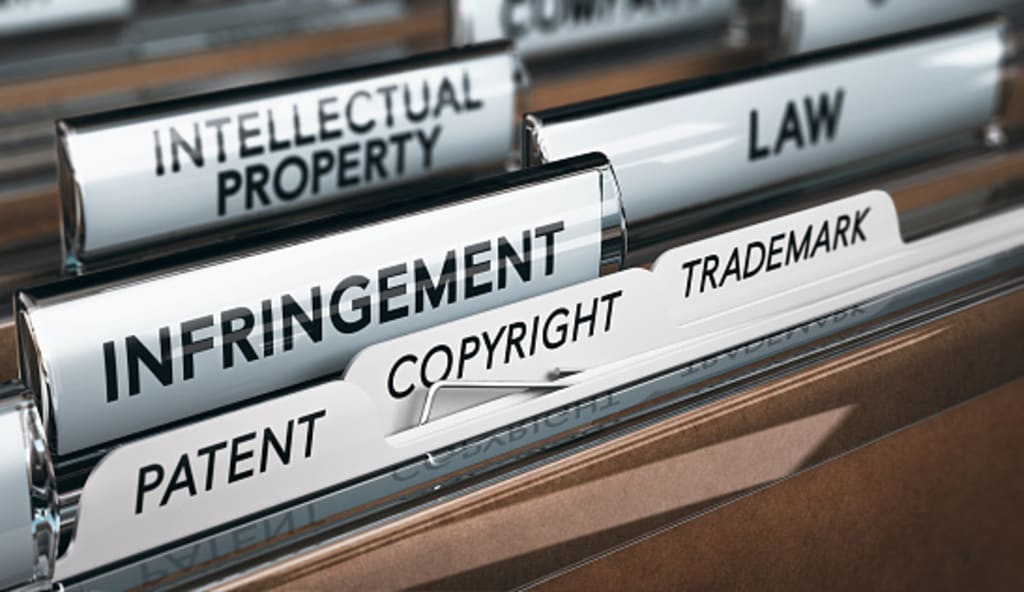Everything You Must Know About Infringement of Trademark
To protect the identity and goodwill of your organization and your products, you should know how to protect them. Let’s find out about it.

To protect the identity and goodwill of your organization and your products, you should know how to protect them. Let’s find out about it.
The main goal of a trademark is to help people notice the source of a particular good or service. The source helps people determine the quality. Consumers usually take decisions based on the trait for which a trademark is essential in the economy. A trademark reflects the source and value of the goods or services for every client.
It is also necessary to ensure that your trademark is not infringed. Only a trademark symbolizes the brand value of the trademark owner. Infringement of trademark typically leads to the finances and goodwill loss to the owner of the infringed mark. Keeping yourself sharp is nearly good for avoiding unnecessary things from potential infringers, which will also stop ruining your reputation.
What does trademark infringement mean?
Trademark infringement in the Republic of India gets outlined beneath Section 29 of the Trademarks Act, 1999. Technically, it is infringement when an unauthorized person uses a trademark that is 'identical' or 'deceptively similar to a registered trademark.
Now, allow us to take a glance at the constituent parts of the trademark enforcement:
Unjustified person: This means a person who is not the owner or the license of the registered trademark.
'Identical' or 'deceptively similar': The test for resolving whether marks are identical or not is by determining whether there is a chance of a likelihood of confusion among the public.
Registered trademark: You can only violate a registered trademark, and the common law conception of passing off will apply to an unregistered trademark.
Goods/services: To establish infringement, even the goods/ services of the infringer must be identical or similar to the goods that the registered Trademark represents.
Any illegal use of the exclusive statutory rights of a registered trademark constitutes a violation.
The violation explained above is direct infringement. There is another factor to trademark infringement in India, i.e. indirect infringement.
What is the indirect infringement of a trademark?
Indirect infringement is a common law principle that holds accountable not only the direct infringers but also the people who induce the direct infringers to intrude. Indirect infringement is also known as a secondary liability that has two categories: contributory infringement and vicarious liability.
A person is responsible for an infringement in 2 possibilities:
When a person knows about the violation.
When a person materially makes or contributes to the direct infringer to infringe.
An individual will be vicariously liable under the following situations:
When the person can control the direct infringer’s actions.
When an individual gets the financial benefit from the infringement
When a person has details about the violation and contributes to it
In the entirety, indirect infringement occurs when someone, though not infringing directly, provokes another person to infringe on a trademark.
With the expansion within the e-commerce business, liability for indirect infringement is necessary as it holds each concerned person responsible.
Thus, whether or not, direct or indirect, any form of trademark infringement in the Republic of India will attract liability. To avoid infringement of a trademark, you should contact trademark professionals to get a consultation before launching trademark enforcement of your brand or product.
What is the punishment for infringement of trademark?
Let’s see what is the punishment for infringement of trademark? In India, the violation of a trademark is a cognisable offence which means that the infringer may also face criminal charges with civil charges. It is also not required for the trademark to be registered for the institution of civil or criminal proceedings in Indian Law.
As mentioned before, this is due to the common law principle of passing off. In the case of trademark infringement or passing off, the court may award the following remedies:
Temporary injunction
Permanent injunction
Damages
Account of profits (damages in the amount of the profits gained from the violation)
Destruction of goods using the infringing mark
Cost of legal proceedings
In any case of a criminal proceeding, the court declares the following penalties:
You can get imprisoned for about six months, extending up to three years. A fine not less than Rs 50,000 may extend to Rs 2 lakh.
Conclusion
If an Infringement of trademark has taken place, they have the right to sue rests on the proprietor of the registered trademark or his legal successor. If the aggrieved party is a deceased person, his legal heirs can file a suit against the infringer. In other cases, you never know if the complainant in an infringement suit is a joint proprietor or a foreign proprietor of a trademark registered in India when infringement occurs in India.
It is relevant to note that the third party has no locus path to bring the violation suit before the competent court. However, like other suits, an infringement suit is also subjected to limitations. According to the trademark Act of 1999, the period of restriction of the suit of an infringement of a trademark is three years from the date of infringement.
About the Creator
Avinash Jain
Hey, I am a corporate paralegal. If you are looking for any trademark services from trademark conceptualization all the way to registration and protection.
Contact us or visit our site now: https://trademarknight.com/





Comments
There are no comments for this story
Be the first to respond and start the conversation.